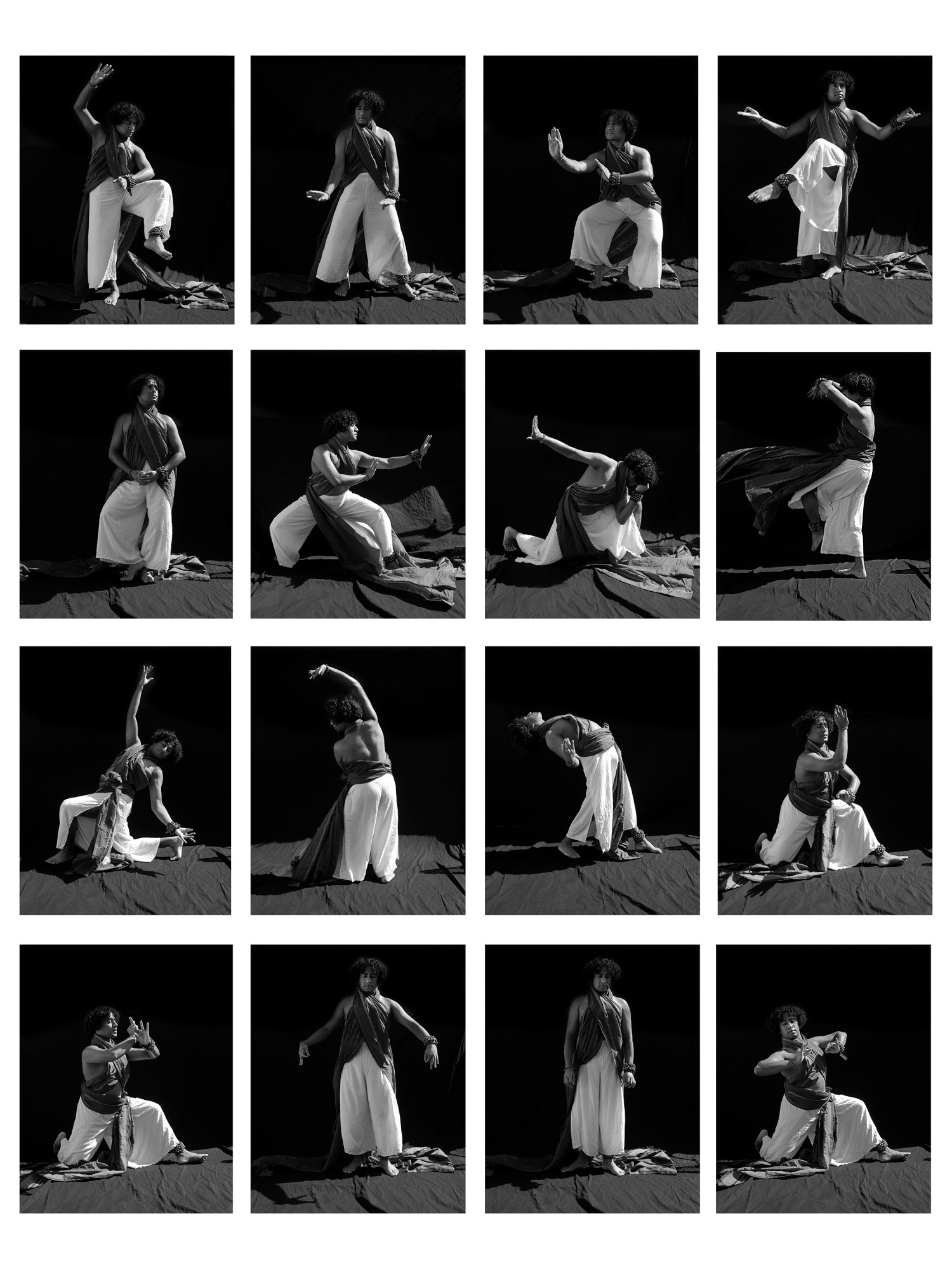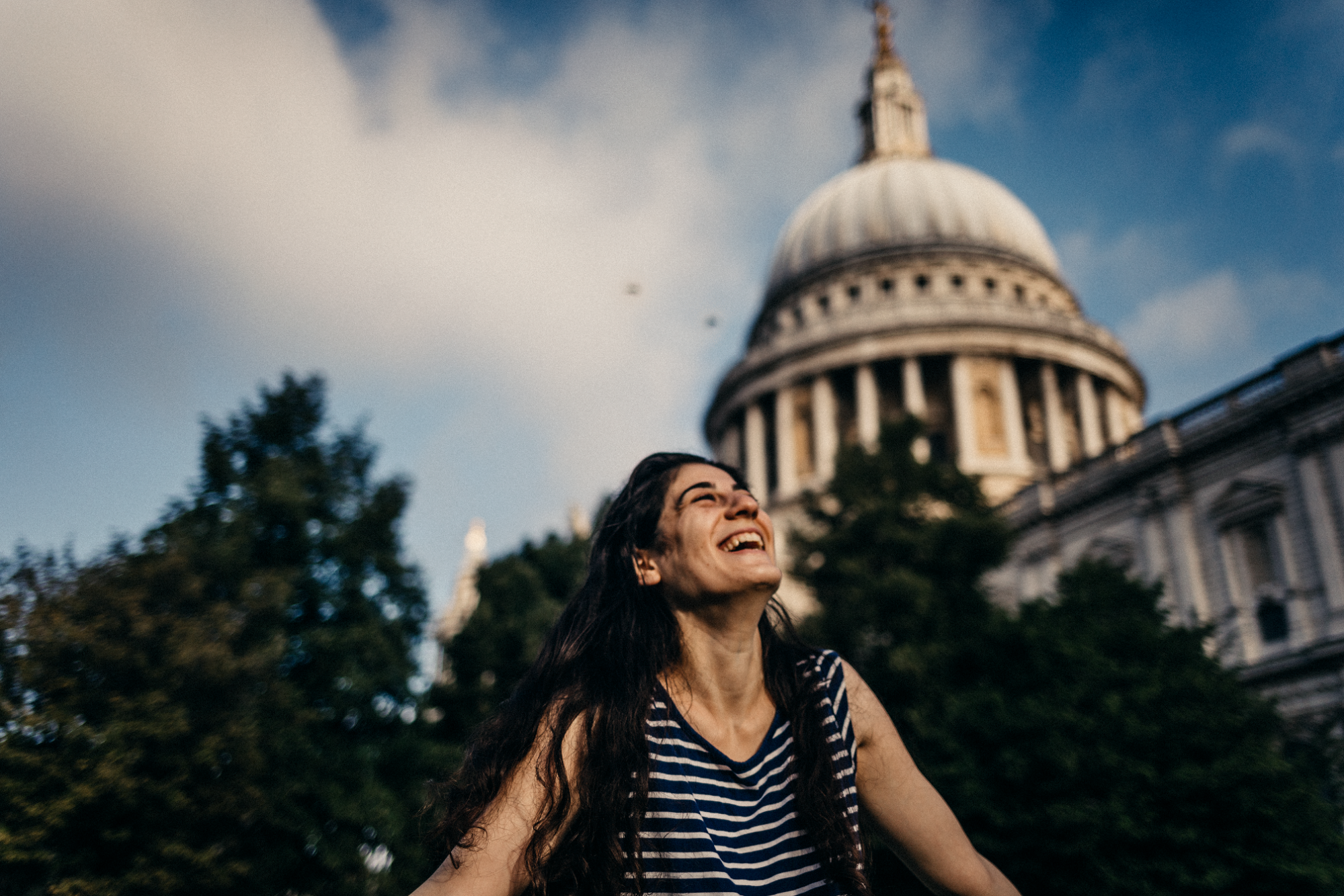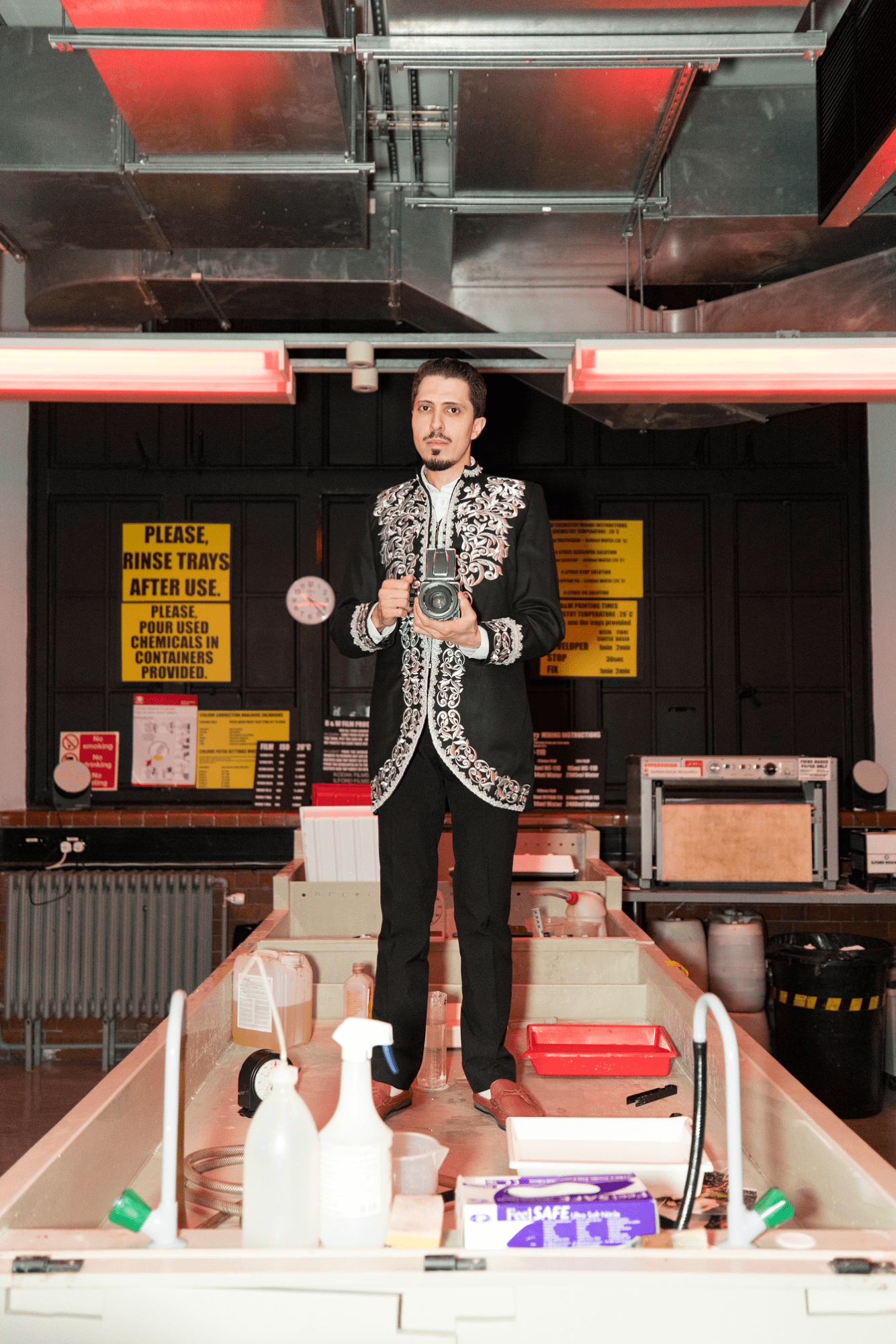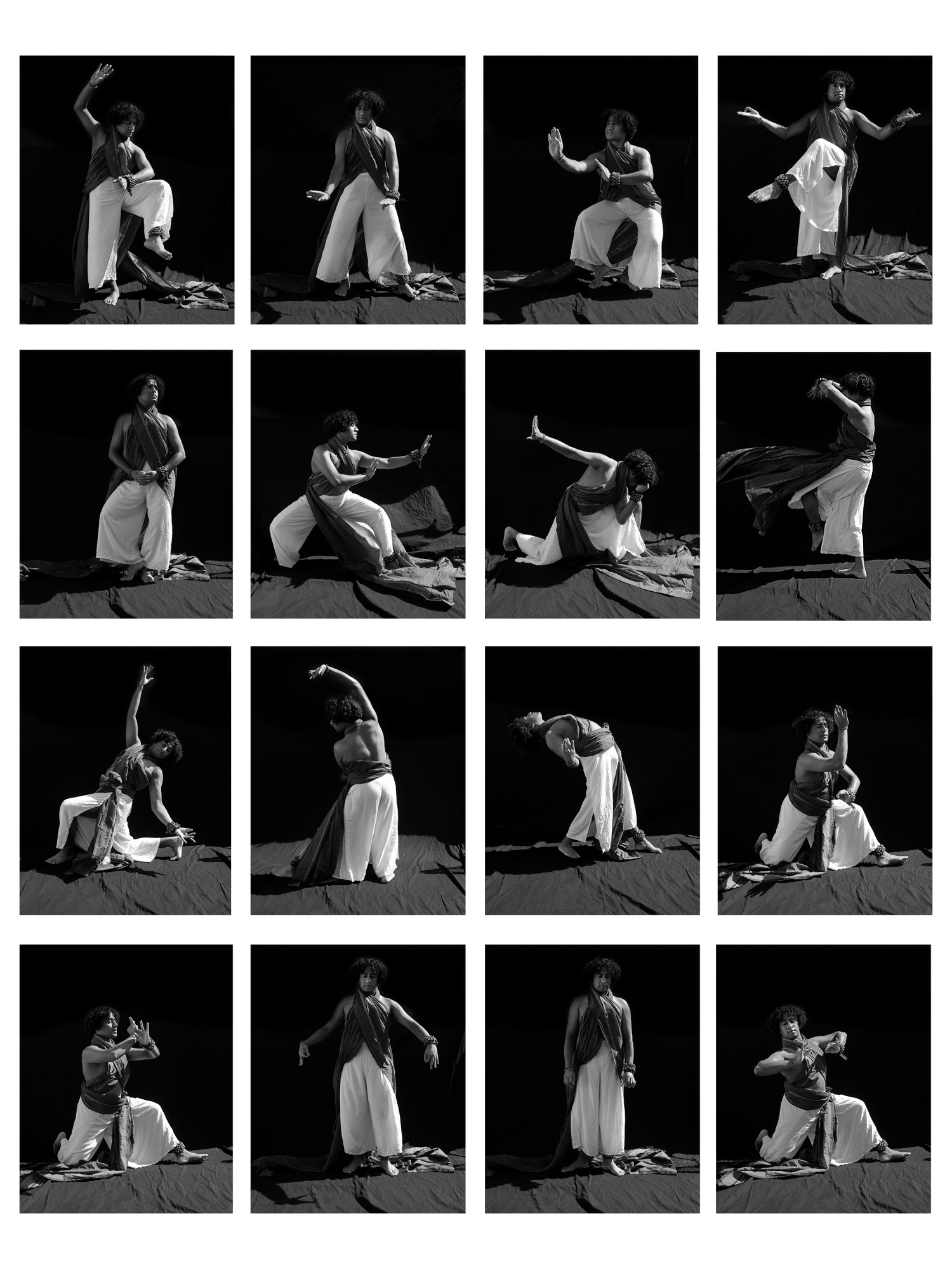Following the success of last year’s exhibition, “A New Beginning”, today refugee employment charity Breaking Barriers present their latest photography show, spotlighting 10 harrowing stories of fighting for refugee status in the UK. Bringing together a breadth of people from different backgrounds, each united by there unwavering strength in the face of adversity, the subjects have been shot and interviewed by a collective of photographers and writers, working collaboratively to share these experiences honestly and authentically.
Entitled “Belonging”, all 10 subjects are photographed with something that, to them, represents the notion of belonging. Co-curated by the charity’s ambassador, the actress Juliet Stevenson, each portrait is a powerful declaration of human strength. But as a whole the exhibition speaks to our broken system. And, given the unthinkably tragic news that emerged earlier this week, of 39 Chinese nationals dying in transit to the UK in the back of a lorry, it comes at a time when it couldn’t be more important to cut through the anti-immigration sentiments that are so prevalent in the UK right now.
“The refugee crisis is one of the biggest issues of our time,” Juliet says. “Breaking Barriers’ Exhibition highlights the real people behind the headlines. Each image captures the personality, experiences and aspirations of real refugees in London today.” Below, we hear Thiru, Samer and Karla’s stories. The free exhibition is open to the public from 29 October — 2 November.

Thiru
When I fled Sri Lanka, the thing I brought with me was my Salangai — ankle bracelets made of lots of small musical bells. They make a big noise and are a big part of my dancing. It’s dancing that helped me get through everything. I believe that the body stores up a lot of trauma, and to get rid of that trauma you have to release it through movement.
My trauma comes from the civil war in Sri Lanka, between the Tamils and the government.
I was studying agricultural engineering when the war started. The fighting got worse and worse, and all of a sudden some of the young people in our community started to disappear. The government had written a law saying that whoever supported the Tamils would be arrested. But they didn’t arrest them — they kidnapped and tortured them.
In 2009, I went home for the holidays and one night I got kidnapped by people with a mask. I was forced to leave my house and they took me to a building somewhere in the jungle. I could hear people crying and screaming. I was there for three months, and I saw the worst at that time.
My dad got to know some influential people and paid them money to find out where I was, and to get me released. A few weeks after I was freed, my dad told me that he applied for a visa to the UK. People ask me if I got here by boat, but luckily I was able to come by plane. I didn’t want to come here but I had to do it to save my life.
My asylum application was initially rejected. It was completely unexpected. I was detained for two months at Gatwick airport. I started to refuse to eat. The trauma was getting to me. Once the government tried to put me on a chartered flight back to Sri Lanka. But there was a campaign to save me, and people shared my story on social media and signed petitions — and eventually, after two and a half years, I got my papers.
It wasn’t easy to handle the situation, I was very traumatised and at one point I even tried to commit suicide. But luckily, I survived.
You need to have goals in life. You never know what will happen in the future but you are walking towards it. Breaking Barriers have supported me to find work whilst I study for my Master’s in Dance Movement Psychotherapy. I want to become a dance therapist to help others to overcome their trauma through movement.
The day I left my country I understood very well that your home is where you feel safe. People often ask me about my future and my answer is that I care more about living in the moment than planning for the future. But it is important not to forget where we come from, and our family roots and values.
Dance is an important link for me back to my home and my old life. It’s an expression of who I am. Being a refugee in the UK I often feel excluded but through dance I can always express myself and be true to who I am.
Interview by Zozan Yasar

Karla
I am 24 years old and from a village in South east Mosul, Iraq. To me, my village was the safest place on earth. We had the biggest Christian community in Iraq. In 2014, when ISIS attacked my village, I left with four of my siblings and mother. I had already lost my father. I saw many people were moving out. I used to pray for them but never thought I had to leave my beloved village and home.
We walked for days to find a safer place in the North. After we lost hope we moved to Lebanon. With the help of the UN, we stayed there for two and a half years. Then we had to decide either to go back to Iraq or to move to the UK. We couldn’t go back to our village as there was nothing left. In September 2017 we arrived in the UK. It was a huge change in our life in terms of culture, language and everything else. I used to get lost a lot. I was completely dependent on Google maps for a while! We didn’t know how to access study, jobs, GPs, or hospitals. We are still learning but it is safe for us to live here. I feel blessed to be here. I love the diversity in British society. It’s like looking at our own hands, where all the fingers are not the same size or shape. I thank God that he makes everyone different, it would be horrible if we were all alike.
I find birds portray my life perfectly. When a bird gets injured, it takes time to heal, then tries to fly again to complete the journey. It is very similar to my story which has started in Iraq then Lebanon and now in the UK. I spend a lot of time in parks just looking at birds. Birds influence me when they fly in the sky and take their life very easy, just to be free. This helps me to understand my situation. I had everything in my life but then within a second, I lost everything. My religion and family taught me ‘to have faith, to accept the situation and move on with life. What happened here, it happens, we can’t control war or anything else, but we can move on’.
In wintertime birds fly away to an unknown land leaving everything behind. They never know if they can come back to the same place. Likewise, I don’t know if I can ever go back to my land, to see my friends. It helps me to take responsibility and to become strong, be myself whatever happens. I love being in the UK but if I must move to another destination at any time of my life, I would do whatever it takes me to make my life meaningful.
In the UK, at first we had difficulty trusting anyone. Then my brother and I came to Breaking Barriers. They helped my brother get into university. I am so glad to be here as I can totally trust them. I can get guidance to understand any documents, to look for jobs and apply for university. Back home I couldn’t complete my accounting study because of the ISIS attacks. Now, I am focusing on improving my English language skills and would love to get back to studying accounting. I don’t want to limit myself with a specific dream or goal, I would rather be open-minded about my situation.
Life has taught me that changes are hard but good. Through the process, we learn and grow. At the end of the day, my family and friends are the most important thing in my life.
Interview by Marsha Glenn

Samer
It was only when I came to the UK that I finally bought a camera. I filmed the people who helped us when we arrived here. I also made a documentary about a Syrian refugee who came here 20 years ago.
In Damascus, where I’m from, I could never afford a camera. I like to tell stories with pictures so I took photos of everything — candles or flowers or my family — but only on my phone.
When the war started, to avoid being forced to join the army, I just stayed at home for nine months. I could not even open the door. I did not want to be a part of the army, to be forced to go and kill people.
In July 2013, our house was damaged in a bomb attack. I travelled through the mountains to Lebanon, walking for three days. It was a very dangerous journey. Life was very difficult in Lebanon and the government always wanted to kick us out.
In 2016, the UN invited us to go to Europe. We thought we were going to Spain, but when they gave us our papers, it said the UK. We were surprised. We said there had been a mistake but they said: No, you are going to the UK. It was my father’s childhood dream to go there, and after all these years my father’s dream had come true. He was always listening to British radio.
It was not easy for us at first. I could not speak English and I could not make any friends. My mother got sick. She is always in so much pain she cannot sleep. I also got asthma here. My brother is in Egypt so we could not bring him with us because he was not registered with the UN. Life was very difficult.
Slowly I started to learn English and did voluntary work at charity shops. I could not understand anything, but people are very kind. They always encouraged me even though I was making a lot of mistakes. After one year in the UK, I started work as a designer in South Kensington but I soon needed to find a new job.
I did not know what to do. Then someone told me about Breaking Barriers, and that they could help me to find a job and improve my English. They helped me to apply for a job with IKEA and supported me with the interview. IKEA accepted me and I started working with them in August 2018 as a customer service adviser.
It was not easy to work in such a big company as my English was not good enough. But my manager always encouraged me and said: do not worry — we all were the same when we came to this country. I made many mistakes in my job, sometimes really big mistakes, but they never discouraged me and I recently got a promotion.
Now that I’m in England and I finally have my camera, life is better. I can take pictures and tell stories. I have such a strong connection with it. A picture is not just a picture of course. It’s important to tell people’s stories to understand each other. My camera lets me do that.
Interview by Zozan Yasar
‘Belonging’ will run from Tuesday 29 October until Saturday 2 November at Proud Gallery Central.


